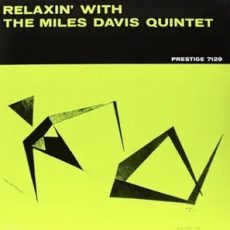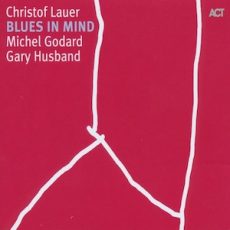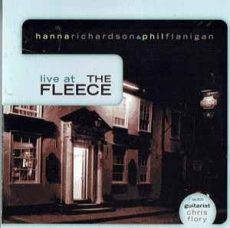
Requisites
Relaxin’ With The Miles Davis Quintet ~ The Miles Davis Quintet | By Eddie Carter
In just two days in 1956, the Miles Davis Quintet recorded four remarkable albums, which are widely regarded as quintessential examples of hard bop and have endured as jazz classics over time. They fulfilled Davis’s contract with Prestige Records before moving to Columbia Records, his home for some of the most iconic music over the next thirty years. The albums are Cookin’ (1957), Workin’ (1959), Steamin’ (1961), and today’s focus, Relaxin’ With The Miles Davis Quintet (Prestige PRLP-7129), released in 1958. Miles Davis is on muted trumpet (tracks: A1 to A3, B1, B2), and trumpet (B3), John Coltrane is on tenor sax, Red Garland is on piano, Paul Chambers is on bass, and Philly Joe Jones is on drums. My copy is no. 535 of the Craft Recordings Limited Edition mono reissue (Prestige CR 00227).
The first side opener, If I Were a Bell by Frank Loesser, became a jazz standard after Davis’s rendition on this album. Miles snaps his fingers to set the rhythm ahead of the quintet’s medium-paced melody. The muted trumpet’s ideas unfold in the opening statement. John demonstrates his signature fluidity next. Red takes an energetic solo ahead of the theme’s reprise and a subtle conclusion. After two brief false starts, You’re My Everything by Mort Dixon, Harry Warren, and Joe Young begins with the quintet’s tender introduction, ahead of Miles’s delicately heartfelt melody and opening solo highlighting his more sentimental side. John executes a graceful, intimate statement, supported by the trio’s rich foundation, leading to a thoughtfully reflective finale from Davis.
The pace picks up noticeably for I Could Write a Book by Richard Rodgers and Lorenz Hart. The trio gets things started, leading to the quintet’s collective medium-fast melody. Miles takes off first with brisk, vibrant notes that set the mood. John fills the air with pure joy next, and then Red’s reading is so full of energy before the leader takes the song out, which ends abruptly. Sonny Rollins’s Oleo opens the second side with two false starts and some lighthearted studio chatter, ahead of Davis’s introduction and the quintet’s lively theme with John completing the melody. Miles goes first, delivering a spirited statement, then John soars into an energetic turn. Red concludes with an upbeat reading while Paul and Philly propel each soloist to new heights before the group’s brisk finish.
Up next is It Could Happen To You by Jimmy Van Heusen and Johnny Burke. The ensemble adopts a relaxed midtempo vibe with Miles leading the theme. He then continues with a sweet-toned first solo. John follows with a compelling statement that’s as cool as the other side of the pillow. Red brings out the liveliness in a cheerful interpretation, engaging beautifully with Paul and Philly in the subdued climax. Woody ‘n’ You by Dizzy Gillespie begins with Red’s brief introduction preceding the opening ensemble. Miles commands the lead solo with fiery passion on the open horn, paving the way for John’s high-energy performance. Davis and Jones share the song’s final moments in the closing chorus, culminating in a gentle fade. A few final words from Miles brings the jazz standard to a close.
Bob Weinstock oversaw the original session, and Rudy Van Gelder was the recording engineer. For this audiophile reissue, Mark Piro and Mason Williams took charge of production, and Bernie Grundman mastered the album from the original tapes. The record is pressed on 180-gram vinyl, using Neotech’s VR900 vinyl compound, and manufactured using a one-step lacquer process. The sound quality of this reissue is truly exceptional, offering a beautifully balanced soundstage that’s ideal for demonstration on a good mid-fi or high-end audio system. This limited-edition box set is 5,000 copies, each individually numbered and presented in a foil-stamped, linen-wrapped slipcase featuring an acrylic inset of the original artwork. The record is protected by an archival-quality, anti-static, non-scratching inner sleeve.
One of the highlights of this reissue is the inclusion of studio snippets, such as false starts and Miles’s conversations with Rudy Van Gelder. These moments offer the listener a unique sense of connection to the studio sessions, making them part of the event. On mid-fi or high-end audio systems, the tonal balance across highs, midrange, and low frequencies truly shines in a stunning soundstage. Relaxin’ With The Miles Davis Quintet is an excellent album of standards, showcasing inspired performances by every member. It’s a superb choice for enjoying at any time of the day or evening. I highly recommend it for a spot in your library, and I urge you to pick up a copy before it sells out, because you ain’t gettin’ mine!
~ Cookin’ With The Miles Davis Quintet (Prestige PRLP 7094), Steamin’ With The Miles Davis Quintet (Prestige PRLP 7200), Workin’ With The Miles Davis Quintet (Prestige PRLP 7166) – Source: Discogs.com
~ Oleo, It Could Happen To You, Woody’n You – Source: JazzStandards.com
~ If I Were A Bell, You’re My Everything, I Could Write A Book – Source: Wikipedia.org
© 2025 by Edward Thomas Carter
More Posts: choice,classic,collectible,collector,history,instrumental,jazz,music,trumpet

Daily Dose Of Jazz…
Christof Lauer was born on May 25, 1953 in Melsungen, Germany. Most well known in Europe where he has performed and/or recorded with Palle Danielsson, Carla Bley, Anthony Cox, Michel Godard, Gary Husband, Vince Mendoza’s Jazzpaña, Michel Portal, Maria João, Alphonse Mouzon, and Peter Erskine.
Since 1979 he has been a member of the Jazzensemble des Hessischen Rundfunks led by Albert Mangelsdorff. In 1994 Lauer joined the United Jazz and Rock Ensemble, replacing Charlie Mariano. and is also.
Tenor and soprano saxophonist Christof Lauer, who is a member of the Hamburg NDR Radio Orchestra, continues to perform, record and tour.
More Posts: history,instrumental,jazz,music,saxophone

Daily Dose Of Jazz…
Sergio Lara was born on May 21, 1959 in Mexico City, Mexico and started playing guitar at age nine. Very early he discovered and began studying several musical styles with his greatest influences being John McLaughlin, Jorge Strunz, Paco de Lucia, Tony Rice, Norman Blake, Sam Bush and David Grisman, among others.
Lara appeared on the international music scene in 1983 with the release of his first solo album titled Sergiology. During the following years he formed his own band, New Acoustic Unit, in Nashville, Tennessee and San Antonio, Texas. In 1994 he released a sophomore album Guitarras Hermanas, the first one for Higher Octave Music. This album of all original music, also included a new instrumental version of the very popular and romantic song Sabor a Mi.
1996 saw Sergio releasing his next product titled Two Guitars-One Passion, which received worldwide attention because of its original combination of different musical styles. Throughout the balance of the 1990s he recorded two more albums with instrumental versions of classic songs and his original compositions.
Omn the new millennium he continued to record albums for his new independent label Fusion Acustica Music. With a career that covers many years and more than ten albums under his name, he has shared the stage with Al Di Meola, Larry Carlton, Bireli Lagrene, Dr. John, Craig Chaquico, Joe Sample, Strunz & Farah, Bela Fleck, Sam Bush, Paquito D’Rivera, Julio Iglesias and Ray Charles.
Guitarist Sergio Lara continues to explore new possibilities inside the world of contemporary instrumental music and sharing improvisation.
More Posts: bandleader,guitar,history,instrumental,jazz,music

Daily Dose Of Jazz…
Hanna Richardson was born on May 16,1956 in Alexandria, Virginia and as the daughter of a foreign service officer, much of her childhood was spent overseas. At the age of seven, while living in South America, she began piano lessons and also sang at home with the family. 1965 saw her father retiring to Geneva, New York where she met bass player Phil Flanigan while in high school.
College saw her singing professionally, first rock and folk music, then hearing an Ella Fitzgerald record she turned to singing jazz. However, it was the singing style of Maxine Sullivan that was to have the greatest impact upon her. After college, Richardson moved to Rochester, New York and continued to pursue her interest in both folk music and jazz and she also taught herself to play the mandolin.
A move to Syracuse, New York had her working at Syracuse University and becoming Assistant Dean in the School of Management. She sang professionally during this period as a session back-up singer. Connecting again with Flanigan who had toured and recorded with Sullivan, and began singing with him. They married and recorded their debut album, Something To Remember You By, in 2002.
Vocalist Hanna Richardson, who has released a half dozen albums, continues to regionally perform, record and educate.

Daily Dose Of Jazz…
Randy Sutin was born on May 14, 1958 in Great Falls, Montana where he studied piano starting at age four and guitar when he turned eight. By the time he was ten he began study of the drums. He began playing mostly rock and some country professionally with local groups at age thirteen. At 20, he began to study mallet percussion, in particular the vibraphone, which became the main staple of his professional life as a musician.
In 1985, Randy relocated to Trenton, New Jersey, then to the Philadelphia, Pennsylvania area four years later. He was a regular member of the Bill Hollis Quartet and soon began working regularly and recording with the Barry Sames Jazz Ensemble. A regular member of the late pianist Eddie Green’s group, he was featured on Eddie’s last recording, Shades of Green. He has also played and recorded with Walter Bell and the Latin Jazz Unit.
Over the last fifteen years, Sutin has continued playing as a regular member of the Barry Sames Jazz Ensemble, which does jazz arrangements of Christian music. He is featured as a soloist on both of Barry Sames’ recordings, Awaiting the Spirit and Celebration. This association with playing jazz for spiritual purposes and a desire to do a project with his wife, Marianne, who is an experienced yogi, led to his latest musical endeavor.
In 2007 they released Meditations for Percussion and Flute, a suite of compositions based on yoga practice blending a mixture of styles, but always falling back to jazz as its core. Together they created their record label, Balanced American Music. Recent work has focused on The Birdhouse Project, a trio with Jim Miller and Tyrone Brown, performing the compositions of Charlie Parker.
His most current project is with The Tyrone Brown String Ensemble. Randy is featured on both of their 2008 releases, The Magic Within and Moon of the Falling Leaves.
Vibraphonist Randy Sutin, who also plays marimba, continues to perform and record.
More Posts: bandleader,history,instrumental,jazz,music,vibraphone



